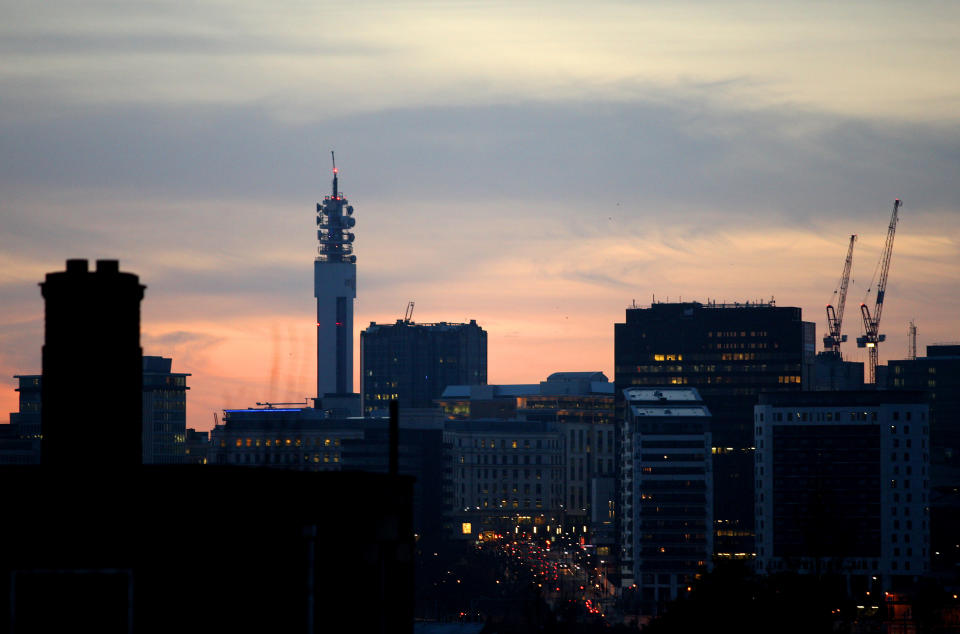One in five young people jobless as UK unemployment 'already at 2.5 million'

Unemployment could be as high as 2.5 million in the UK, with one in five young people out of work.
Figures from the Office for National Statistics (ONS) showed the UK unemployment rate at 4.5% in the three months to August, but a survey of more than 6,000 adults in September suggests it could now stand as high as 7%.
The online survey, which was included in a new ‘Jobs, Jobs, Jobs’ report published on Wednesday, was conducted between 17-22 September by YouGov for think tank Resolution Foundation and had a total sample size of 6,061 18-65-year-olds. The figures have been weighted and are representative of all UK adults (aged 18+) according to age, gender, and region. The survey was also said to be supported by the Health Foundation.
The survey suggests the figure for 18-24-year-olds is 20%, which would mark the worst youth unemployment rate in four decades.
The think tank puts rising unemployment down more to the increased difficulties of finding work during the coronavirus crisis than the widespread redundancies that have dominated the headlines. Vacancies and new starter numbers are both a third lower than normal.
READ MORE: Remote working blamed for city centre vacancy slump
The report lays bare the disproportionate impact of the jobs crisis on parts of the population. The most affected remain those in hospitality, leisure and others hit hard by lockdown, and young, older, insecure, low-paid and small-organisation employees are more likely to have seen their jobs or pay hit.
Some 40% of workers who reported losing work between February and September were on insecure contracts, according to the study.
Around one in five workers in the most deprived areas was also out of work, furloughed or on reduced pay in early September because of the pandemic.
Watch: UK unemployment hits 1.5 million
Many self-employed workers have also suffered more than employees. More than half reported lower than usual earnings every month since April. Two-thirds of those who hadn’t claimed government grants said they had lost income, reflecting controversial restrictions on support.
The report highlights the longer-term challenges facing the jobs market. It found low levels of success finding work by September among those who had lost jobs, including just a third of 18-24-year-olds. Many jobseekers are also hunting for work within their industries despite the sectors’ ongoing challenges, and few applications for expanding sectors like social care.
Policymakers should therefore not assume unemployment workers will be “easily or swiftly absorbed into other parts of the economy,” the think tank warned.
READ MORE: 130 jobs at risk as six Revolution bars set to close
The report sparked union calls for tackling mass unemployment to be the UK government’s “top priority.” Trades Union Congress (TUC) general secretary Frances O’Grady called for the Kickstart Scheme for young people to focus on “good jobs on the real Living Wage,” and the government to hike job support scheme wage subsidies to 80% of pay.
“Losing your job is terrible at any time, but it’s especially hard now when few employers are recruiting new workers,” she said.
Kathleen Henehan, senior research and policy analyst at the Resolution Foundation, said: “The true nature of Britain’s jobs crisis is starting to reveal itself. Around one-in-five young people, and over one-in-five BAME workers, have fallen straight from furloughing into unemployment.
“Worryingly, fewer than half of those who have lost their jobs during the pandemic have been able to find work since. This suggests that even if the public health crisis recedes in a few months’ time, Britain’s jobs crisis will be with us for far longer.”
Watch: What is the job support scheme and how has it changed?

 Yahoo Finance
Yahoo Finance 